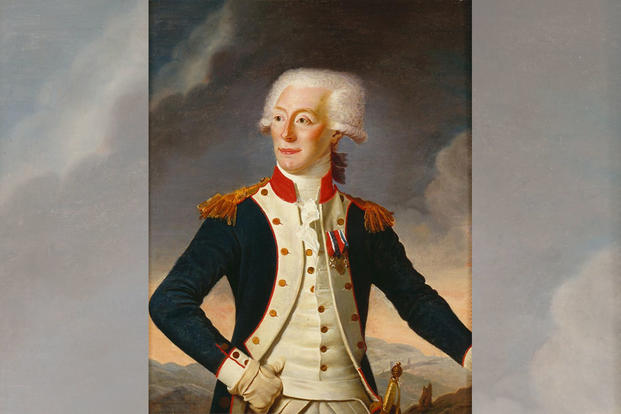His character was so compelling that Gen. George Washington ordered his personal physician to "take care of him as if he were my son." His bearing was so authoritative that Congress commissioned him a major general when he was 19. His personality was so attractive that his wife, Adrienne, endured four years in prison by his side rather than live without him. He was Joseph du Motier, the Marquis de Lafayette, and his influence on the American Revolution was profound.
The patriots' cause engaged the sentiments and intellect of the young French aristocrat. He was predisposed against his country's old enemy, Great Britain, and enthralled by the idea of liberty. With his wealth, he bought a ship, La Victoire, and sailed to South Carolina in 1777. Having already obtained the endorsement of American agents in France, his temporary rank of major general was quickly approved. He met Washington on Aug. 1.
As journalist C. Brian Kelly writes in his "Best Little Stories from the American Revolution," it was "both a glad and dreary time to make such an acquaintance." Lafayette witnessed American defeats at Brandywine (where he sustained a severe leg wound) and Germantown, the occupation of Philadelphia and the miserable winter at Valley Forge with the Continental Army.
But Lafayette's willingness to lead and fight through thick and thin impressed his commanding officer, particularly when Lafayette informed Washington of Gen. Thomas Conway's plot to replace Washington with Horatio Gates as commander in chief. Washington quashed the plot quickly, and in the fall, fortune favored the Continental Army with Burgoyne's surrender at Saratoga.
As French engagement increased, Lafayette experienced some diplomatic problems (his cousin was Count Charles D'Estaing, head of the French fleet). In early 1779, he headed home. His chief tie to the United States that year was a new son named George Washington du Motier.
However, Lafayette returned to America in the spring of 1780 and played a critical role in events leading to the British capitulation. With Gen. Anthony Wayne, he chased Cornwallis' forces to the mouth of Virginia's York River, and later that summer, Lafayette commanded the successful assault of a redoubt at Yorktown. He returned to France that year as the "hero of two worlds."
Although his later fortunes rose and fell with the French Revolution and its aftermath, his service to his adopted republic has never been forgotten. An American flag flies still at his Parisian gravesite.
Want to Know More About the Military?
Be sure to get the latest news about the U.S. military, as well as critical info about how to join and all the benefits of service. Subscribe to Military.com and receive customized updates delivered straight to your inbox.















